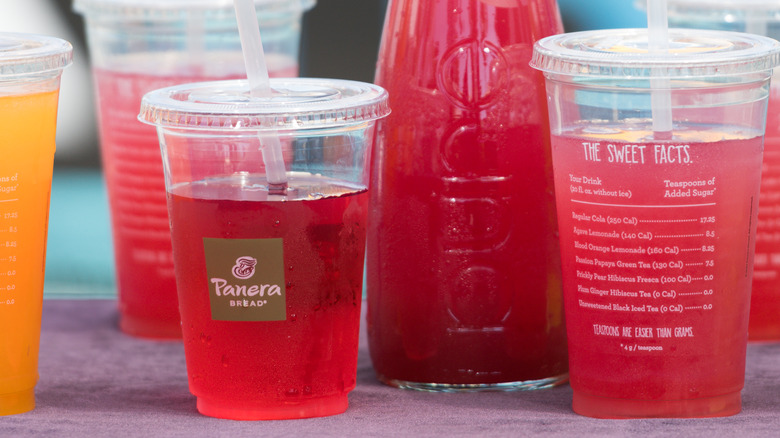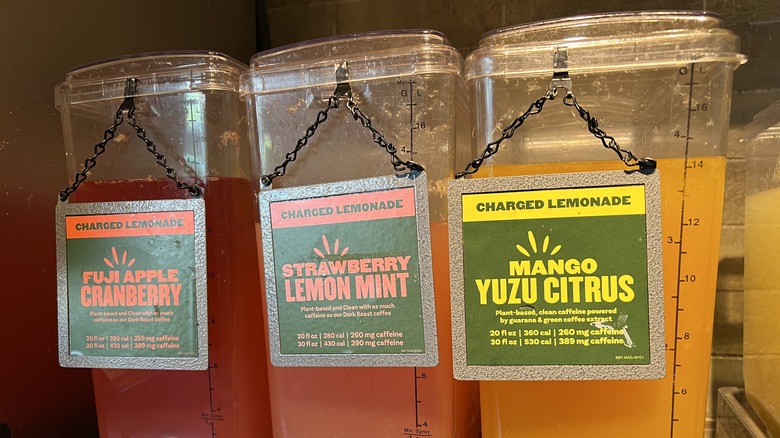Panera's Charged Lemonade Is At The Center Of A New Lawsuit
Chain restaurant Panera has landed into some hot water over their caffeinated beverage, Charged Lemonade. In September of 2022, 21-year-old Sarah Katz died after suffering cardiac arrest after consuming a large serving of the Charged Lemonade at a Panera location in Philadelphia. Katz, a student at the University of Pennsylvania, suffered from a heart condition, long QT syndrome type 1, that was exasperated by the high amount of caffeine in energy drinks. This past Monday, Katz's parents filed a lawsuit alleging that the drink was improperly labeled and misrepresented by Panera, leading directly to Katz's death.
Panera is currently investigating the claims of negligence. In a statement issued to CNN, the company claimed, "At Panera, we strongly believe in transparency around our ingredients. We will work quickly to thoroughly investigate this matter." Though the drink is essentially represented as a caffeinated lemonade, the lawsuit claims the drink should be clearly labeled as a lemon-flavored energy drink, with appropriate warnings for those who suffer from heart conditions attached. In addition to demanding a change to how the drink is represented, the Katz family is asking for punitive and compensatory damages.
An energy drink or caffeinated lemonade?
According to Panera, the collection of drinks gets its heightened caffeine content from a blend of guarana and green coffee extract. Its current description reads, "Plant-based and clean with as much caffeine as our Dark Roast coffee." However, one large cup of Charged Lemonade (30 ounces) contains around 390 milligrams of caffeine, the equivalent of 6 shots of espresso, or four to five cups of coffee. For reference, the Mayo Clinic suggests that 400 milligrams of caffeine is the maximum amount an individual should consume a day, though this is calibrated toward people without pre-existing heart conditions. Indeed, a large container of Charged Lemonade far surpasses the caffeine content of most cans of energy drinks on the market, including Monster and Celsius.
While the high caffeine quantity is listed on containers of the Charged Lemonade at the stores, the lawsuit claims that the drinks are confusingly arranged among other, non-caffeinated drinks, making it twice as likely that a consumer may misunderstand whether their lemonade is caffeinated or not. In addition to that, the drinks are mixed by hand at each Panera location, making it harder to regulate how much caffeine truly goes into each serving of lemonade. All of this, the lawsuit alleges, led to Katz fundamentally misunderstanding how much caffeine she was consuming. Barring the changing of the drink's labeling, the Katz family hopes it will be removed from the restaurant's rotation so that such a mistake won't occur again.

